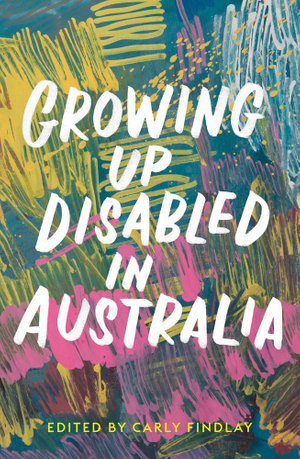Growing up disabled in Australia by Carly Findlay ed.

The thing that comes through most strongly in this collection of personal stories is each writer’s pride in who they are. Being disabled is not a failing to be normal, it is another variety in the amazing array of life. It is ableism that makes mainstream society see people with a disability as something different, something less. There are many difficult struggles recounted in this volume, but each of the writers asserts their right to be themself. That strength of spirit, that message, holds something for everyone, regardless of ability or disability, regardless of life experience.
I must admit when I first picked up this book I was a little daunted that there were so many stories drawn together in this collection. There are 46 altogether, selected from over 360 submissions. But as I started to read one account after another, I just wanted to read more. There are so many interesting people, so many interesting lives, that I didn’t want to put the book down.
My understanding of disability has been expanded. Reading about conditions that one might not usually associate with the label ‘disabled’, has exposed how inconsiderate our society is, how much everything is tailored to such a narrow idea of diversity.
The book provides insight into the ‘social model of disability’ in contrast to the medical model of disability where disability is seen to be a problem that needs to be fixed. The social model seeks to change society to recognise that people with disability have an equal right to be fully participating citizens. You can read more about the social model of disability on the website of People with Disability Australia.
The voices in this volume assert their right to be appreciated for who they are at the moment, their uncorrected selves; stories of amazing people with something to offer to everyone.
Themes: Disability, Ableism, Identity.
Helen Eddy